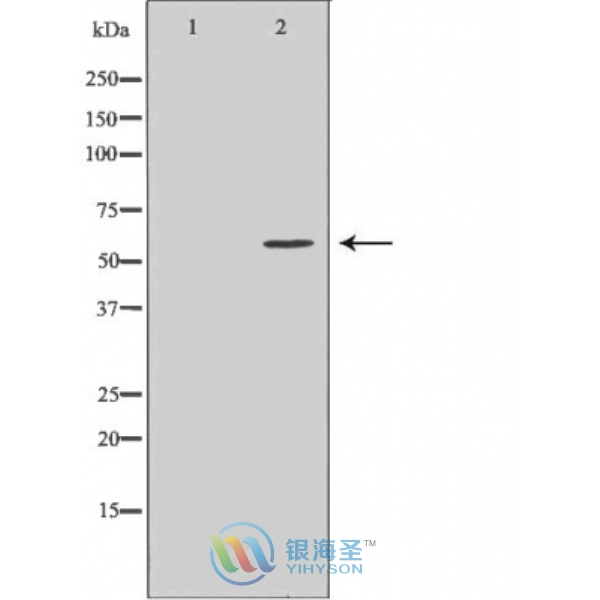ARP993-62
[Polyclonal Antibody]
CDC25A Rabbit Polyclonal Antibody

www.yhsbio.com
market@yhsbio.com
support@yhsbio.com
+86-21-54651191
Room 703,Building 6,333# Guiping
Rd.,Xuhui District,Shanghai,China
market@yhsbio.com
support@yhsbio.com
+86-21-54651191
Room 703,Building 6,333# Guiping
Rd.,Xuhui District,Shanghai,China
DATASHEET
| Species: | Rabbit |
| Applications: | WB IHC |
| Immunogen Range: | A recombinant protein of human CDC25A |
| Clonality: | Polyclonal Antibody |
| Isotype: | IgG |
| GENE ID: | 993 |
| Swiss Prot: | P30304 |
| Synonyms: | CDC25A2, CDC25A,cdc25A |
| Purification: | Affinity purification |
| Storage: | Store at -20°C or -80°C in PBS with 0.02% sodium azide and 50% glycerol. Avoid freeze/thaw cycles. |
| Background: | The cdc25 protein phosphatase family plays a critical role in activating cyclin-dependent kinases (CDKs) via dephosphorylation of conserved Thr14/Tyr15 inhibitory phosphorylation sites. While cdc25C is primarily responsible for activating CDK1 to overcome the G2/M checkpoint and allow mitotic entry, the primary substrate of cdc25A is CDK2, which, when active, allows progression through the G1/S and intra-S checkpoints (1). Abundance, subcellular localization and activity of cdc25A is tightly controlled by a variety of mechanisms, including phosphorylation, ubiquitination, and inhibitory binding to 14-3-3 proteins. During normal cell cycle progression, elevated c-Myc and E2F transcription factor levels lead to increased cdc25A expression (2). When conditions are favorable for DNA synthesis, cdc25A and CDK2 form an activation loop, wherein each activates the other enzyme (1). DNA damage, on the other hand, leads to multisite phosphorylation at inhibitory sites (Ser123, Ser177, Ser278, Ser292, and Thr506) by Chk1 and Chk2, which result in 14-3-3 binding and ubiquitin-mediated degradation (3,4). |
| Caculated MW: | 59 kDa |
| Observed MW: | Refer to Figures |
| Applications: |
WB 1:500-1:2000 IHC 1:50-1:200 |
| Reacitivity: | Human, Mouse, Rat |
For research use only. Not intended for diagnostic or therapeutic use!
Additional information
